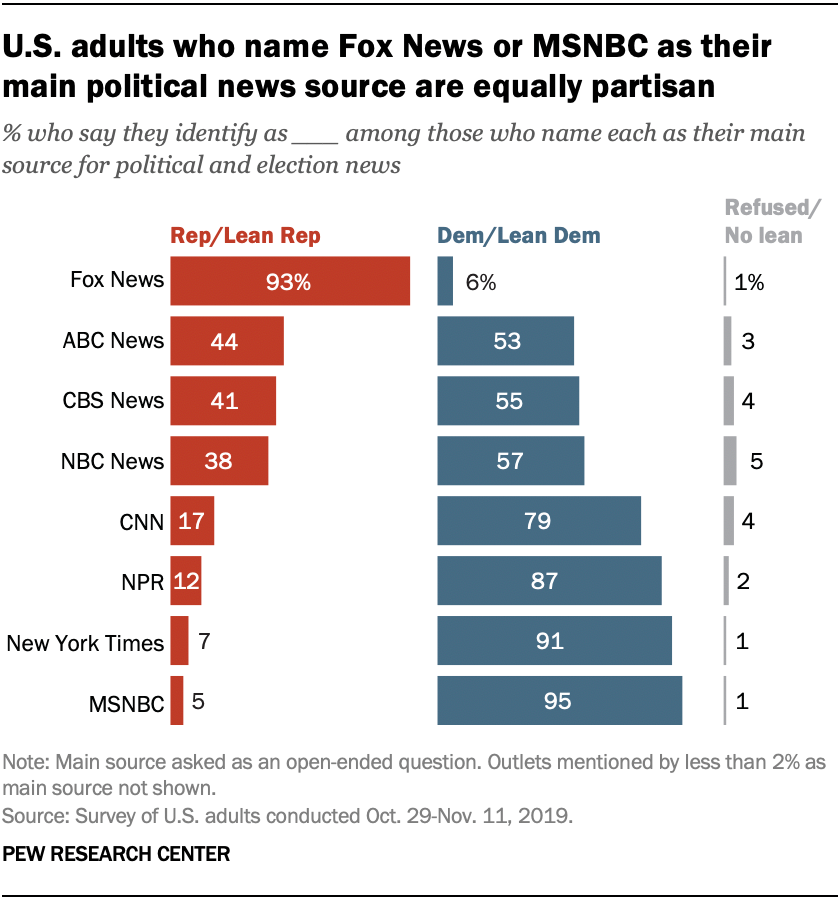No, our standard is, “we’re killing journalists (very rarely) and stifling perspectives (rarely), and that’s not okay, but at least that’s just not expected like it is with the other guys.”
That’s under the assumption that perspectives are only rarely stifled…
Which I’d love to think is true, but really is a question of whether you consider “publishable but no one will read it” to be a stifled perspective or not.
What it really comes down to is how often journalistic suppression actually happens. I like to look at the extreme examples, such as the Edward Snowdon case. There was certainly some interference there, but that’s surely nothing compared to what would happen if something similar happened in China or Russia.
The bigger issue that we have, imo, is that major media companies self-censor because they want to drive a narrative. But there’s still high quantity journalism going on, you just need to look outside of the major news networks.
But if your high quality journalism only reaches 1% of the population while the other 99% of the population considers it fake news, what’s the point? It’ll have no political impact anyway, which defeats the purpose of journalistic integrity because good journalism isn’t getting attention or shifting public perception.
Here’s a media bias chart. As it turn out, I tend to get my news from Reason (I consider myself Libertarian, so it’s my biased news of choice), BBC, The Guardian, and The New York Times, and occasionally a few others on that list. I rarely read/watch anything from the left or the right, though occasionally I’ll read an article or two from The Daily Mail or Huffpost. I also like my local independent journalism (seems to be left leaning; I’m in a very conservative area, so I think it balances out).
There’s a lot of variety and scrutiny in the US, and I’m sure the same is true in other western countries. Yes, sometimes governments interfere when there’s a big news piece they don’t like, but the truth eventually comes out. I can’t say the same is true for Chinese or Russian news because those governments have so much control over their media vs western countries.
No, our standard is, “we’re killing journalists (very rarely) and stifling perspectives (rarely), and that’s not okay, but at least that’s just not expected like it is with the other guys.”
That’s under the assumption that perspectives are only rarely stifled…
Which I’d love to think is true, but really is a question of whether you consider “publishable but no one will read it” to be a stifled perspective or not.
What it really comes down to is how often journalistic suppression actually happens. I like to look at the extreme examples, such as the Edward Snowdon case. There was certainly some interference there, but that’s surely nothing compared to what would happen if something similar happened in China or Russia.
The bigger issue that we have, imo, is that major media companies self-censor because they want to drive a narrative. But there’s still high quantity journalism going on, you just need to look outside of the major news networks.
But if your high quality journalism only reaches 1% of the population while the other 99% of the population considers it fake news, what’s the point? It’ll have no political impact anyway, which defeats the purpose of journalistic integrity because good journalism isn’t getting attention or shifting public perception.
You don’t need to convince 99% of people, you only need to convince about 10% or so. Something like 80% of voters will vote a straight ticket in the US and ~10% confirmed they would split their vote.
The majority are going to go for the biased media of their choice that tends to support their side. That’s just basic tribalism, and it’s alive and well in the US and probably the rest of the world. .
.
Here’s a media bias chart. As it turn out, I tend to get my news from Reason (I consider myself Libertarian, so it’s my biased news of choice), BBC, The Guardian, and The New York Times, and occasionally a few others on that list. I rarely read/watch anything from the left or the right, though occasionally I’ll read an article or two from The Daily Mail or Huffpost. I also like my local independent journalism (seems to be left leaning; I’m in a very conservative area, so I think it balances out).
There’s a lot of variety and scrutiny in the US, and I’m sure the same is true in other western countries. Yes, sometimes governments interfere when there’s a big news piece they don’t like, but the truth eventually comes out. I can’t say the same is true for Chinese or Russian news because those governments have so much control over their media vs western countries.